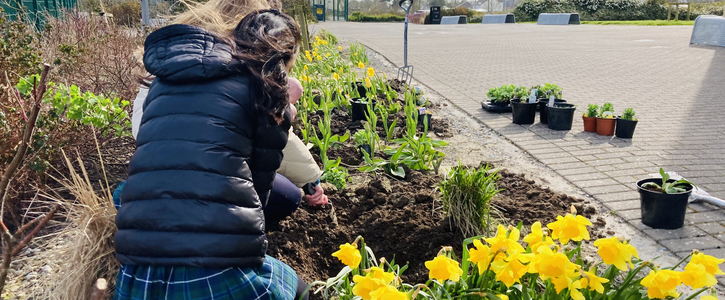500 signatures reached
To: Department of Education; Department of Health; Department of Environment, Climate and Communications
Ban Pesticide Use in Schools

Ban the use of pesticides on school grounds around the country.
Why is this important?
The risks posed by pesticides, including the widely used chemical glyphosate, to both human health and the environment are too significant to be ignored, particularly in areas where our children spend a considerable amount of their time. The Irish Schools Sustainability Network, other environmental groups and educational organisations aim to bring about a national ban of pesticide use in these sensitive environments.
Health Risks to Children
Numerous studies have raised alarm about the potential health hazards of glyphosate. Classified as a "probable human carcinogen" by the International Agency for Research on Cancer (IARC), exposure to glyphosate has been linked to an increased risk of non-Hodgkin lymphoma and other cancers. Children are particularly vulnerable to environmental toxins due to their developing bodies, the vulnerability of their immune systems and the fact that they may come into direct contact with treated grass, soil and outdoor equipment. The long-term effects of even low-level exposure to glyphosate remain poorly understood, but the precautionary principle dictates that we must err on the side of safety, especially when the health of children is at stake.
Environmental Impact
Chemical pesticides are not just a threat to human health but also to the environment. For example the widespread use of glyphosate has been associated with a decline in biodiversity, as it indiscriminately kills plants, leading to the destruction of habitats for insects, birds, and other wildlife. In particular, glyphosate has been linked to the decline of pollinator species, such as bees, which play a crucial role in maintaining the balance of ecosystems and food production. Furthermore, runoff from school grounds into nearby waterways can contaminate water supplies, affecting aquatic ecosystems and potentially entering the food chain.
Alternatives to pesticides
There are safer, more sustainable alternatives to glyphosate and other pesticides that do not pose the same risks to human health or the environment. Mechanical weeding, organic herbicides, and other integrated pest management strategies can be employed to maintain school grounds without compromising the safety of our children or the surrounding ecosystem.
A Call for Action
Given the mounting evidence of glyphosate’s risks, it is crucial that we take proactive measures to protect our children and the environment. Banning the use of pesticides on school grounds would be a significant step towards creating a healthier, safer environment for students and reducing the broader ecological impact of harmful chemicals.
Given the mounting evidence of glyphosate’s risks, it is crucial that we take proactive measures to protect our children and the environment. Banning the use of pesticides on school grounds would be a significant step towards creating a healthier, safer environment for students and reducing the broader ecological impact of harmful chemicals.
We urge you to consider the growing body of scientific research, as well as the actions taken by other countries, such as Austria and France, that have restricted or banned pesticide use on school grounds. By doing so, you will demonstrate a strong commitment to public health and environmental stewardship.
